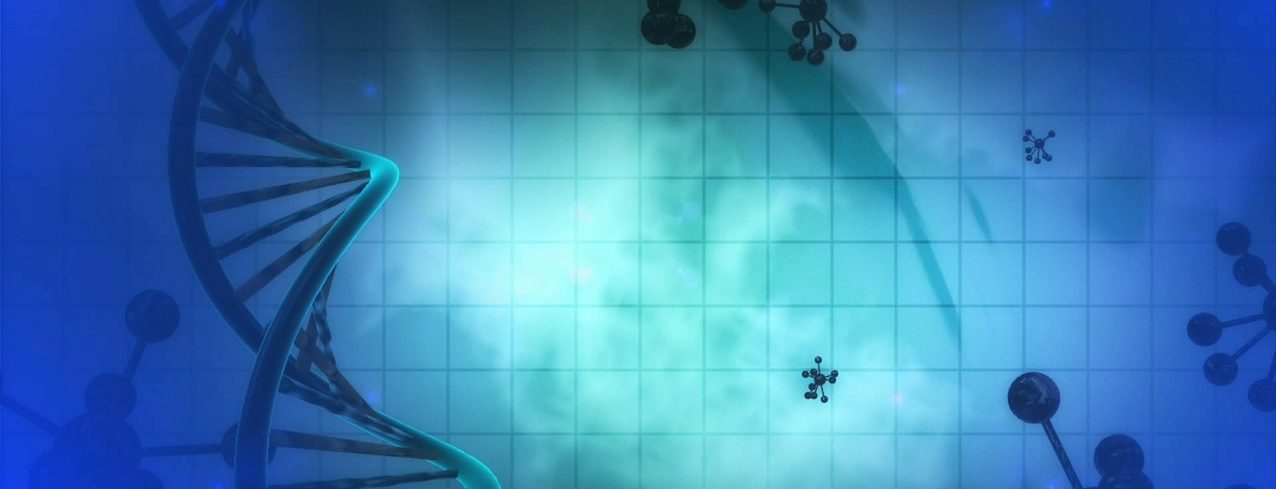Nutritional Intervention: talking about health + Down syndrome with Gabi Giacomin
Today, Gabi Giacomin gives us a rundown on why people with Down syndrome benefit from nutritional intervention (think vitamins and supplements). Due to the presence of the third copy of Chromosome 21 in all cells within people with Trisomy 21 and the impact this has on the physiological systems throughout their bodies, it’s not viable to compare their nutritional requirements to those of typical children. We need to look at how we can support their unique biological needs in the best way. This is the third post in our series of four Monday Health Talks with Gabi. If you’d like to read the first post on Optimum Diet, you can click here and the second post about Complementary and Alternative Medicines & Therapies is here.

It is well documented in the literature that nutritional intervention decreases risk and delays conditions associated with Down syndrome (DS) from developing, improving quality of life.
Children with Down Syndrome differ from the typical population in many ways nutritionally. The multi-vitamin and trace metal deficiencies they experience are long term. One reason people with DS experience nutrient deficiencies is from improper absorption in the gut. It is necessary for children with DS to be tested for nutritional deficiencies and commence allergy-free diets with relevant supplementation as early as possible to allow maximum development.
Why supplement?
Levels of fat soluble Vitamins such as A and E are lower than average in children with DS possibly due to malabsorption. Conjunctival alterations in the eyes of patients with DS are due to altered Vitamin A metabolism. Supplementation with Vitamin A can reduce incidence of infection and improve plasma Vitamin A levels.
Vitamin B1 deficiency in children with DS exists at higher rates than in the typical population. Children with DS tend to consume Vitamin B1 below the recommended Recommended Daily Allowance (RDA). VitaminB6 metabolism is abnormal in people with DS. Supplementation of small amounts of Vitamin B6 in those with DS helped normalise brain function by reducing elevated cortical auditory evoked potential to normal. Vitamin B12 is reported to be low in people with DS in some studies.
Vitamin C deficiency is high among children with DS, is associated with dietary intake and linked to a higher incidence of infection. Poor dietary intake of Vitamin D also exists in people with DS and low levels exist despite high exposure to sunlight.
Vitamin E levels are low in children with DS due to malabsorption. Patients with DS related dementia have lower levels of vitamin E than those without dementia. Vitamin E has a protective role in the body, slowing down the onset of Alzheimer’s. Vitamin E protects the body from chromosomal damage in lymphocytes, suggesting that its antioxidant benefits may also improve the efficiency of DNA.
Individuals with DS have below normal levels of Folate, which increases with age. Erythrocyte macrocytosis (large red blood cells) is more common in children with DS due to alterations in the methylation cycle. Low homocyteine levels and a high risk of folate trapping can be avoided through intervention with Folinic acid. This form of folate is more efficiently absorbed and available for folate dependent reactions.
Calcium metabolism is abnormal in DS. While dietary consumption of calcium appears to be high, intracellular and hair levels of calcium are decreased. Iron levels are reported to be significantly lower in DS than in controls and dietary consumption of iron is also low in this population. Magnesium and Manganese levels were lower in erythrocytes (red blood cells) and thrombocytes (platelets) in children with DS.
Plasma Selenium levels are significantly lower in DS than the typical population. Selenium supplementation optimises antioxidant protection by increasing GSHPx (glutathione) levels in the DS population.
Retention of Zinc in DS is around 30% compared with 58% in typical adults. Zinc deficiency is associated with hypothyroidism and supplementation improves thyroid function in people with DS.
Plasma total and free Carnitine levels were significantly lower in the DS population compared to typical children of the same age. Carnitine supplementation for people with DS has many benefits including improvements in metabolism of fats and conduction of nerve cells, improved muscle tone and reduced oxidative damage to cells. Statistically significant improvements of attention and visual memory were noted in children with DS treated with L-acetyl Carnitine supplementation. Serine is deficient in the plasma of people with DS.
Nutritional deficiencies in people with DS result from biochemical imbalances in their physiology. It is clearly demonstrated in the literature that a targeted approach to Nutritional Intervention is required.

Nutrigenetic Intervention
The aim of Nutrigenetic Intervention in DS is to manipulate the over expression of genes by blocking their transcription – the first step of gene expression where a segment of DNA is copied into RNA.
An example is the over-expression of the enzyme SOD1, which places people with DS under more oxidative stress as a result of increased levels of free radicals in organs, particularly the brain. ROS (reactive oxygen species) are associated with premature ageing in DS, and supplementing with specific antioxidants such as A,C and E becomes imperative if the cell is to function successfully in a oxygen rich environment.
In addition, supplementation with Selenium and Vitamin D3 up regulates glutathione peroxidase, which detoxifies hydrogen peroxide – a byproduct of high SOD1 expression, to balance the antioxidant system.
Alpha-ketoglutarate, bioflavonoids, vitamin C and proline manipulate the COLVIa gene strengthening connective tissue and formation of cartilage and bone, and improving muscle tone in DS.
Overexpression of the CBS gene leads to chronic folate deficiency resulting in poor growth, impaired adrenal sufficiency, poor purine synthesis, poor cognition and, in rare cases, Leukaemia. Supplementation with methylfolate, folinic acid, Vitamin B6 and B12 solve the problem of folate trapping caused by over expression of the CBS gene.
RCAN1 is over expressed in DS and interferes with normal brain development. The bioflavonoid Quercetin is used as an inhibitor to down regulate its function. Quercetin also down regulates DYRK1 expression, along with EGCg (epigallocatechin-3-gallate) to enhance cognitive ability in DS.
Nutrigenomists recognise that people with genotype disorders have different nutritional needs to those of the typical population. Nutrigenetic Intervention to match an individual’s genetics is the most effective way to prevent chronic disease.
Significant scientific evidence exists to support the use of nutritional supplements in people with Down syndrome. However, it’s important to consult a healthcare professional, such as a Doctor or Naturopath with knowledge and experience of the unique physiology of a person with Down Syndrome, before starting supplementation.

Bibliography
Mazurek D, Wyka J. Down Syndrome – Genetic and Nutritional Aspects of Accompanying Disorders. Rocz Panstw Zakl Hig 2015;66(3):189-194
Reading CM, Down’s Syndrome: Nutritional Intervention, 2014; 80/114 Nutrition and Dietetics, Medline.
Turkel H, Nusbaum I. Medical Treatment of Down Syndrome and Genetic Diseases, 4th Ubiotica, Southfield (MI), 1985 Res Dev Disabil. 2015 Oct-Nov;45-46:14-20.
Sacks BI, Buckley RF. Multi-nutrient formulas and other substances as therapies for Down syndrome: an overview. Down Syndrome News and Update 1(2):70-83, 1998
Frager J, Barnet A, Weiss I, Coleman M. A double blind study of vitamin B6 in Down’s syndrome infants. J Ment Def Res 1985;29(Pt3):241-246
Colombo MI, Girdardo E, Incarbone E, Conti R, Ricci BM, Maina D. Vitamin C in children with trisomy 21. Minerva Pediatr,1989;41(4):189-192
Hilty N, Sepp N, Rammal E, Pechlaner C, Hintner H, Fritsch P. Scurvy in trisomy 21. Hautarzt 1991;42(7):464-466
Cengiz M, Seven M. Vitamin and mineral status in Down syndrome. Trace Elem Elec 2000;17(3):156-160
Werbach M. Down syndrome. In Textbook of Nutritional Medicine. Third Line Press,Tarzana (CA), 1999:340-348
McCoy EE, Sneddon JM. Decreased calcium content and 45Ca2+ uptake in Down’s syndrome blood platelets. Pediatr Res 1984;18(9):914-916
Purice M, Maximillan C, Dumitru I, Ioan D. Zinc and copper in plasma and erythrocytes of Down’s syndrome children. Endocrinologie 1988;26(2):113-117
Hamilton K. Down’s syndrome: selenium supplementation and trace elements. CP Currents 1994;4(3):46
Kralik A, et al. Influence of zinc and selenium deficiency on parameters related to thyroid metabolism. Hormone Metabol Res 1996;28:223-226
Sherman AR. Zinc, copper and iron nutriture and immunity. J Nutr,1992;122:604-609
Stabile A, et al. Immunodeficiency and plasma zinc levels in children with Down’s syndrome: a long-term follow-up of oral zinc supplementation. Clin Immunolog Immunopath, 1991;58:207:216
Bucci I, Napolitano G, Giuliani C, Lio S, Minnucci A, Di Giacomo F, Calabrese G, Sabatino G, Palka G, Monocao F. Zinc sulphate supplementation improves thyroid hypofunction in hypozincemic Down children. Biol Trace Elem Res 1999;67:257-268
J Intellect Disabil Res. 1992 Jun;36 ( Pt 3):251-7. Vitamin D status in children with Down’s syndrome.
Del Arco C1, Riancho JA, Luzuriaga C, González-Macías J, Flórez J.
Res Dev Disabil. 2015 Oct-Nov;45-46:14-20. doi: 10.1016/j.ridd.2015.07.010. Epub 2015 Jul 23.
Persistence of the benefit of an antioxidant therapy in children and teenagers with Down syndrome.
Parisotto EB1, Giaretta AG2, Zamoner A3, Moreira EA4, Fröde TS5, Pedrosa RC3, Filho DW6.
Anneren G and Edman B, Down syndrome—a gene dosage disease caused by trisomy of genes within a small segment of the long arm of chromosome 21, exemplified by the study of effects from the superoxide type-1 (SOD-1) gene. AMPIS Suppl 40: 71-9, 1993.
Chadefaux B, Rethor MO, Raoul O, Ceballos I, Poissonnier M, Gilgenkrantx S and Allard D. Cystathionine beta synthase: Gene dosage effect in trisomy 21. Biochem Biophys Res Commun 128: 1-10, 1985.
De la Torre R, De Sola S, Pons M, Duchon A, de Lagran MM, Farré M, Fitó M, Benejam B, Langohr K, Rodriguez J, Pujadas M, Bizot JC, Cuenca A, Janel N, Catuara S, Covas MI, Blehaut H, Herault Y, Delabar JM, Dierssen M. Epigallocatechin-3-gallate, a DYRK1A inhibitor, rescues cognitive deficits in Down syndrome mouse models and in humans. Mol Nutr Food Res. 2014 Feb;58(2):278-88.
This article first appeared on http://mumma-love.com
